
“I don’t drink coffee,” Alessia Antinori declares as she looks out at the neat rows of organically grown lettuce, peas, fava beans and others vegetables at the Fattoria Fiorano in Rome. “I drink wine.”
“You have got to be kidding?” I say, putting down my pen and taking a break from my frenetic note taking. She talks fast and I am having a hard time keeping up with names of wines, artists, relatives, and places in Asia. We were sitting in the garden area at her Fattoria Fiorano, the family farm on the edge of Rome.
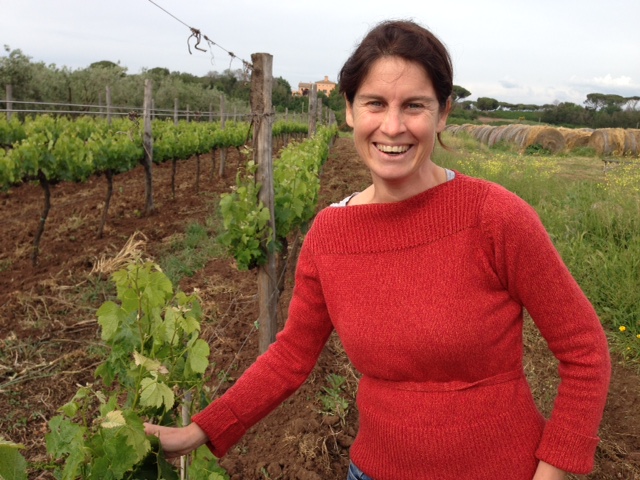
Alessia is Vice-President of the Antinori family winemaking empire responsible for the commercial side, she has recently re-launched a family farm (coming from the other side of the family) in Rome making only organic wine and food which is served in a restaurant on the property. She runs the family art exhibitions in Tuscany. When she is not busy with those projects, Alessia dashes off to remote corners of the globe to promote the Antinori label. Oh yes, and on top of everything else, she has two young sons.
I still cannot believe she does not drink coffee. “I don’t need it,” she explains, “I have too much energy of my own.” She thinks about that for half a second before charging on, “when I was in Iran last week I really suffered because I could not drink wine for five days.”
But let’s forget about coffee for a minute, this is not a story about beans—although there are a few fava beans in here, it is a story about roots, family roots and the roots in the vineyard.
The Antinori family of Tuscany has roots that are well-documented as can be seen on their family tree. They stretch way back to 1385 when Giovanni di Piero Antinori entered the winemaker’s guild in the city of Florence.
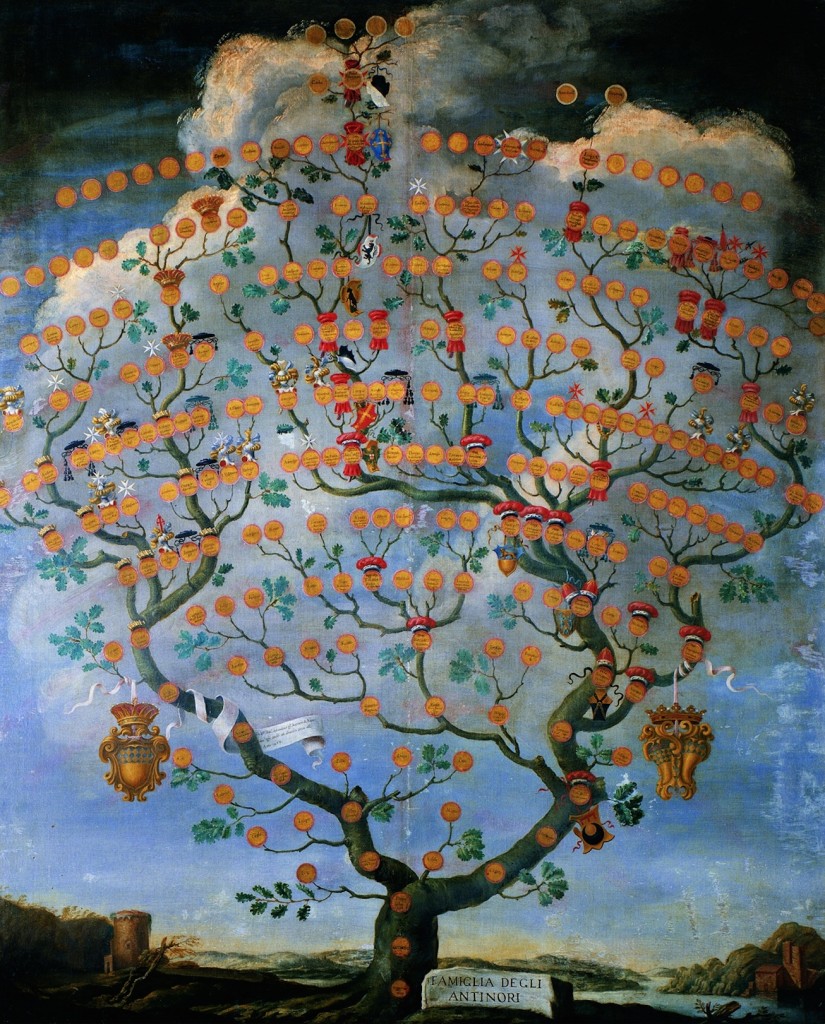
The family has continued making wine for 26 generations. Alessia’s father, the Marquis Piero Antinori, recently handed down the business to his three daughters Albiera, Allegra and Alessia.
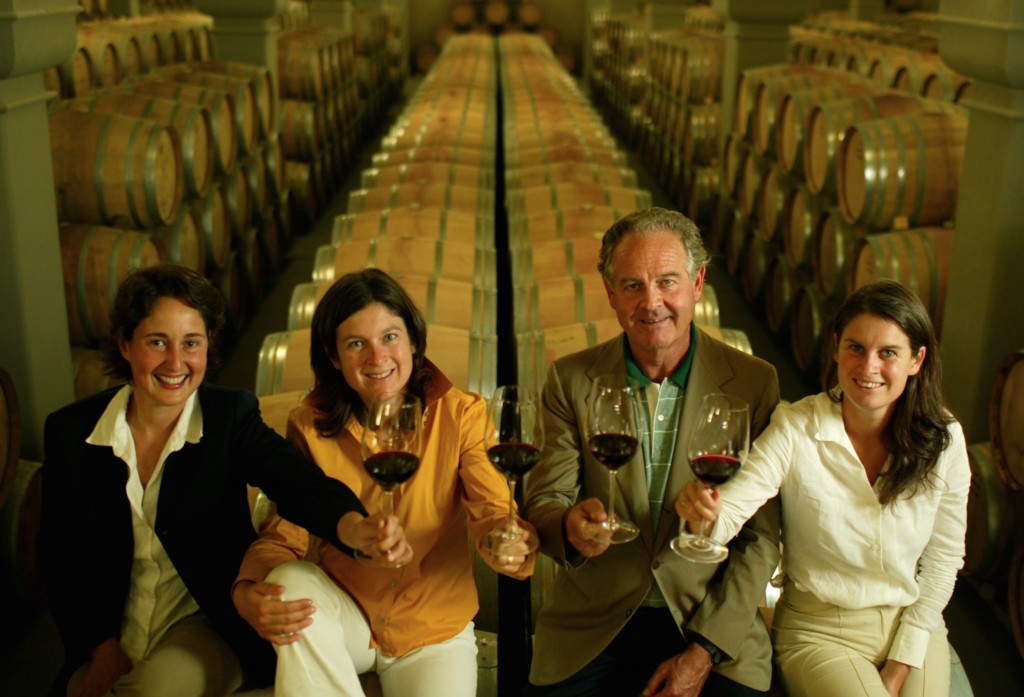
The Antinori’s empire stretches across the globe with estates in the US (California and Washington State), Malta, Romania, Hungary, and Chile.
In 2012 the family inaugurated a stylish, avant-garde wine cellar in the Tuscan countryside that emerges from the vine-covered hillside with spiraling staircases wooden paneling, terracotta interiors and fabulous views over the Tuscan countryside. Below is their vast wine cellar with barrels of Antinori wine.
Alessia has long had an interest in contemporary art and one of her jobs has been creating a museum to exhibit contemporary artists at the cellar. She rattles off a series of names of artists she is working with who I am not familiar with but I am soon to realize are important – Tomas Saraceno, Nicholas Party, Rosa Barba, Giorgio Andreotta Calo’. She also takes care of the families historic collection and exhibition with works ranging back centuries.
But for Alessia it is not all about Tuscan traditions. She loves to travel and part of her job has been taking the Antinori wines to the rest of the world. When she was 30 she moved to Hong Kong for four years, which she describes as the “best years of my life,” as she dashed around Asia introducing wine in remote, exotic places. She opened up markets for the family wine in Vietnam, Cambodia, Sri Lanka, Oman and Bahrain.
Alessia pauses in her descriptions for a moment to point out to me that her recent trip to Iran was not a business trip but for pleasure. “I think we are seeing an Iranian springtime. It is a place with enormous potential, but as far as wine is concerned, there is a long way to go.”
Alessia always takes a long-term view, noting that they are opening an Antinori “Cantinetta” in Baku, Azerbaijan now but her initial visit there was 10 years ago. The “Cantinetta” are small Italian-style restaurants that serve traditional food and Antinori wines. Clearly wine production and marketing requires energy, determination and a lot of patience.
These days, however, Alessia says she is spending 95-percent of her time on another project, the Fattoria Fiorano, a family farm inherited from her mother’s side of the family.
Back in 1946, Alessia’s maternal grandfather, Alberico Boncompagni Ludovisi, the Prince of Venosa, inherited a precious plot of land on the outskirts of Rome along the Appian Way. He decided he was going to make his own wine and travelled off to Bordeaux in France to get some new grape varieties. He brought back some Cabernet, Merlot, Semillon and Malvasia di Candia and started up his farm.
Apparently Alberico was an ornery fellow (Alessia used the word “burbero” in Italian), strong-willed, determined and precise in his production. He began farming in the 1950s using only organic methods and resisted all pressures in the 1960s and 1970s to introduce chemicals. Alessia said he would drive his tractor around the farm every day in his tweed jacket. The Prince made a very limited amount of wine and, according to wine connoisseurs, it was extraordinary. Alessia says she has visited the old wine shops in Rome where the owners said they had to travel out to the farm where her grandfather kept his precious bottles locked up in a room. If they wanted to buy the wine they had to bring the precise amount of money in cash and give it to a few women who worked there who would close the buyers in a locked room then disappear for a bit only to reappear with a few cases. No checks accepted, no change given.
The “burbero” Prince had clear ideas of how his wine should be and one year, according to Alessia, pulled the corks and dumped an entire vintage of white wine because he did not like how it tasted. Alessia said he trusted just a few people to work with him.
Alessia said her grandfather was also “fanatical” about wheat and flour, growing his own wheat and making his own bread. Before dying he gave Alessia’s sister the “lievito madre” – that would be the “Yeast Mother” which had to be “manipulated” every few weeks for years. Now it is the yeast that is used to make the bread at the “Orto Di Alberico” restaurant.
The Prince’s only child, Francesca, is Alessia’s mother. When he got older and felt he could not supervise the production and had no one interested in taking it over, the cantankerous Prince tore out all his vines. He died in 2005.
In 2008 Alessia decided to revive the old farm and produce the same wines and organic food that her grandfather once made. It was not easy. Her first stroke of luck was when she found eight abandoned rows that had not been pulled up but were covered with earth. They were four rows of Cabernet and four of Merlot. Alessia and her team pulled them out and have been carefully managing them using them to plant 19 hectares of vineyards. In 2010 they produced 510 bottles of red wine. Then by sheer luck she visited a neighbor who was the brother of her grandfather’s former trusted assistant. She noticed some old ruined vines and asked what they were. “Oh, that is some of your grandfather’s old Semillon,” he apparently responded. Alessia immediately asked if she could use them to bring back to life the Semillon vineyards at the Fattoria Fiorano.
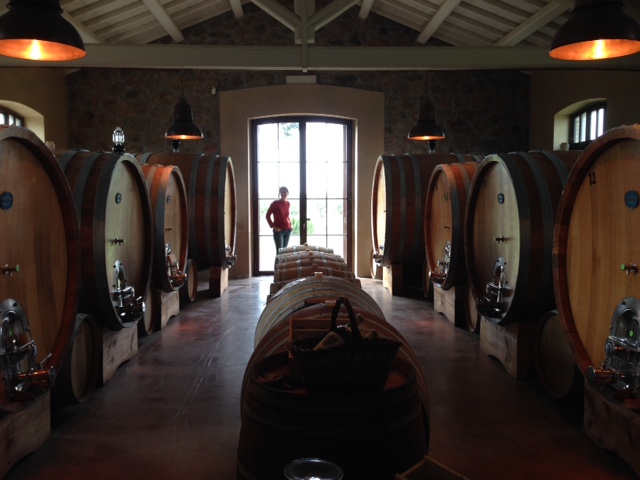
Alessia converted the former stable into a wine cellar, now lined with barrels of cabernet, merlot, Semillon.
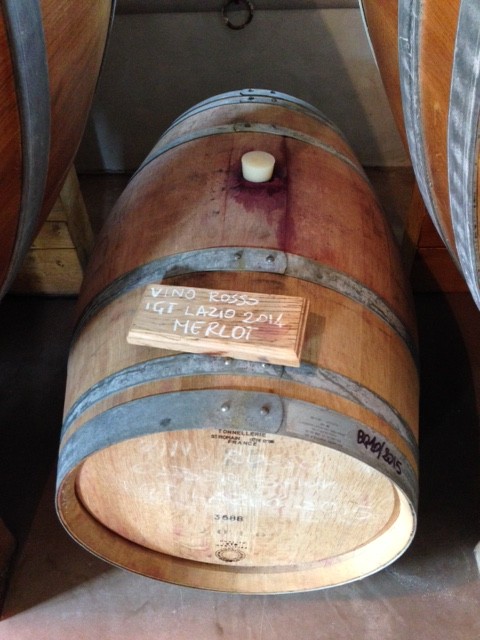
The wine is just a small part of what is produced at the Fattoria Fiorano. The fields are planted with rows of lettuce, fava beans, radish, fennel and rocket.
They make their own cheeses from milk provided by a sheep and goat farmer on a neighboring farm. All these items are cooked in the kitchen on the farm and served in their own restaurant, “L’Orto di Alberico” –Alberico’s Vegetable Garden – named after her grandfather.
L’Orto di Alberico also holds events with children who can come help gather the vegetables, get cooking lessons and participate in a host of other activities.
Alessia is driven in her determination to make this farm a success. She says she is constantly bombarding her staff with new ideas of things she wants to do, “sometimes the people who work here just tell me BASTA!” she says laughing. She also has little tolerance for her staffers wavering from their organic mission. “I found out they served a prosciutto the other day and I was furious,” said Alessia, “I want food produced on this farm served at the restaurant and that is all.”
After our conversation at a table in the garden of the farm, Alessia and I took a walk past the rows of lettuces with an intense scent emanating from the flowering rosebushes lining the vegetable gardens and down to the vineyard. At the edge of the vineyard, Alessia pointed to the opposite hillside, “we are going to cover that whole hillside with sunflowers,” she said gleefully.
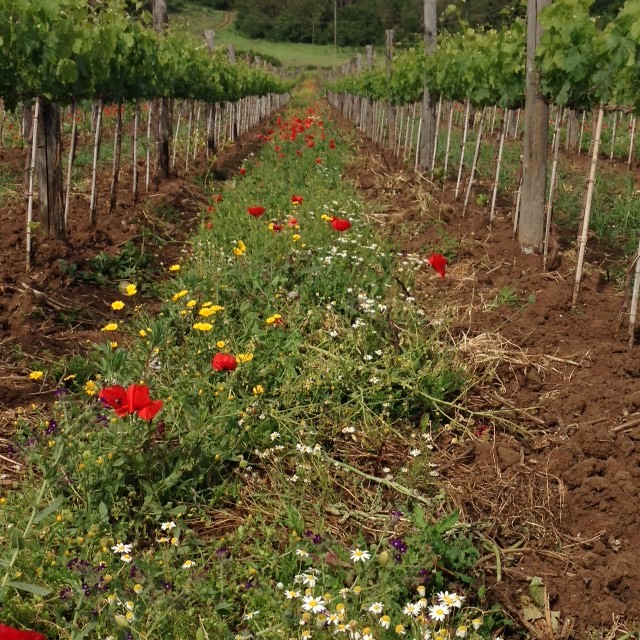
In the vineyard Alessia indicated the bright red poppy flowers in between the rows, “when you see poppy flowers, that is a clear sign that the farm is organic,” she explained.
We walked down a path to the area where Alessia found her grandfather’s original vines and Alessia leaned down and scooped up a handful of dirt, “see this,” she said, “this is volcanic soil, it is very particular for making wine. The wine you make from this soil is natural and organic, savage and wild.”
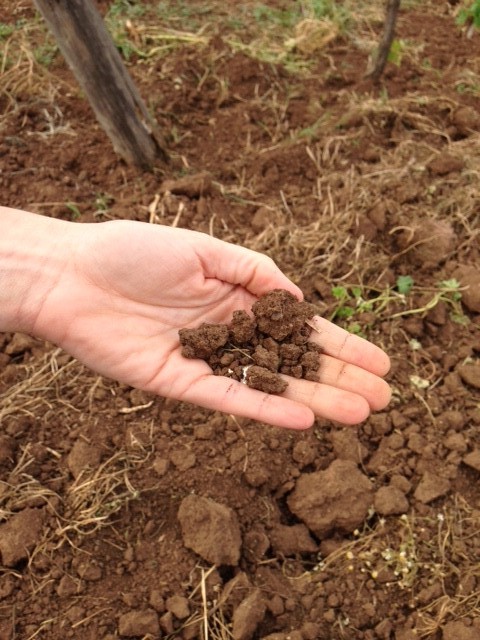
Back up at the farmhouse, Alessia showed me the “caseificio” where they produce the cheeses and the little store where they sell wine and organic foods made on the farm. At the house, Alessia’s younger son Giulio just woke up from a nap. After talking a lot about winemaking and her farm, we switched over to the subject of motherhood and I asked her how she manages to do it all. She was straightforward as always, “it is tough being a mother, you always feel a little bit guilty. You have children because you want to be with them and then you always feel you are not spending enough time with them.” I nodded, sharing this common feeling.
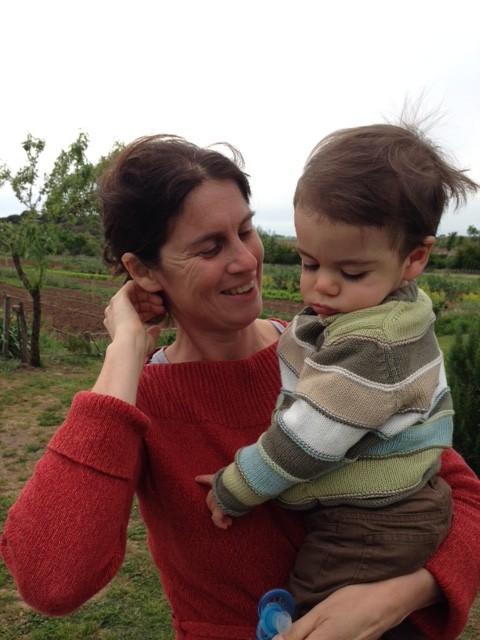
Then she added something very Antinori-ish returning to the theme of roots. “The Antinori family has been producing wines for 26 generations, but I don’t want to think about the past, I need to think about the future, so I have to transmit my children the family values and company values and therefore the time I spend with my kids is also a company investment.”
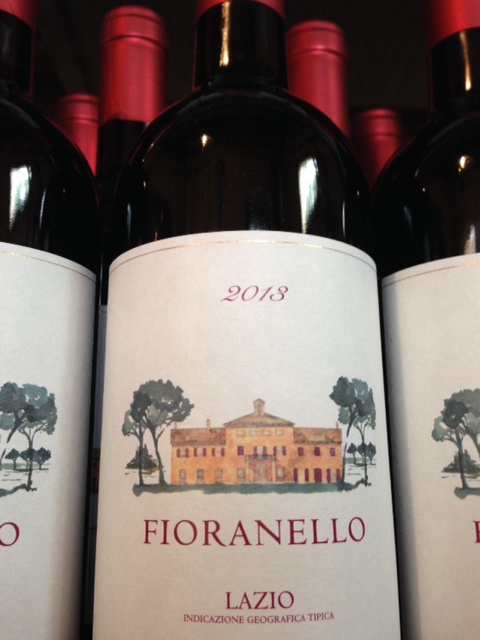
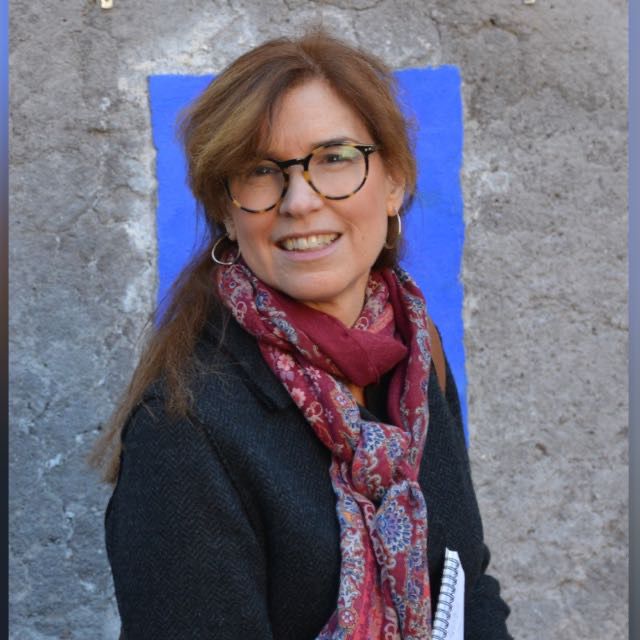
What an interesting piece of Roman history and culture! I am quite familiar with the Boncompagni Ludovisi family from my days as a docent at the American Embassy and have met Alberico’s nephew Nicolò Boncompagni Ludovisi and his American wife Rita. It is so interesting to know this historical family with such deep roots continue to thrive and to nurture their heritage and the land.
Hmm, I will have to ask Alessia about this Nicolo’ and his American wife. I wonder if they have taken an interest in the Fattoria Fiorano project as well.
good wine, good cheese, good bread – there is nothing else!
Totally agree!
Most interesting, Tricia. I have forwarded this to an Italian friend, from just near Greve in Chianti, who is head sommelier on an American super-luxury cruise ship – I am sure he knows the family. There is also the Frescobaldi family, old Tuscan nobility like the Antinoris, who have also been making wine for many generations. Perhaps you could extend this story into a two-part with an interview of the Marchese Frescobaldi in Florence.
I will be interested to hear what your sommelier friend thinks and if by any chance he knew of the Fiorano wine produced by Alessia’s grandfather the Prince of Venosa. And you are right, I should definitely do a 2-part series!
Enjoyed lunch with Alessia today, an amazing spirit equally concerned about the Antinori legacy expressed through her wines and the potential of her children.
Yes, such an impressive, talented woman!!